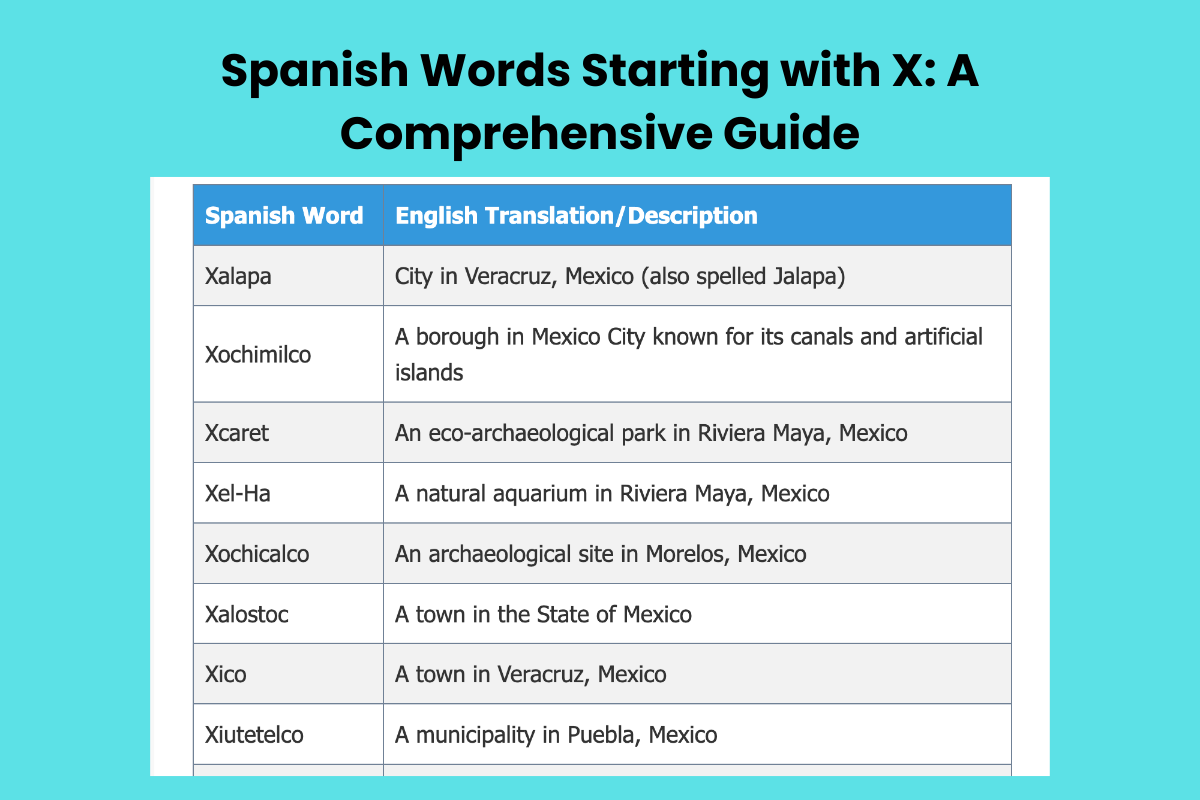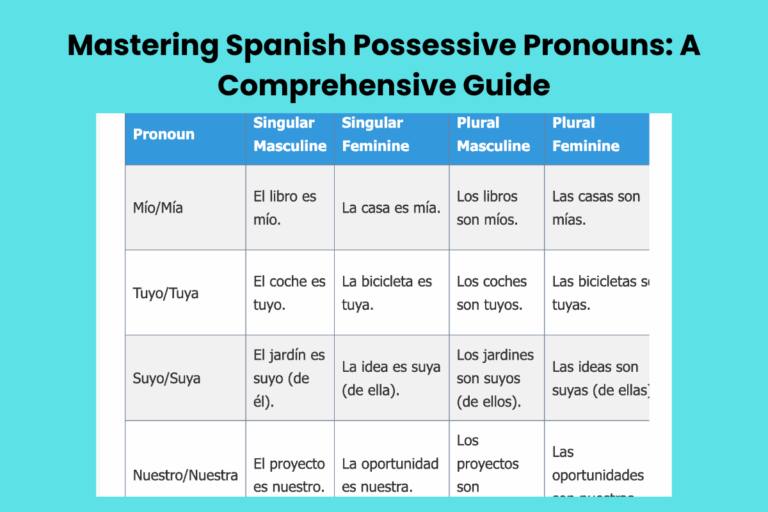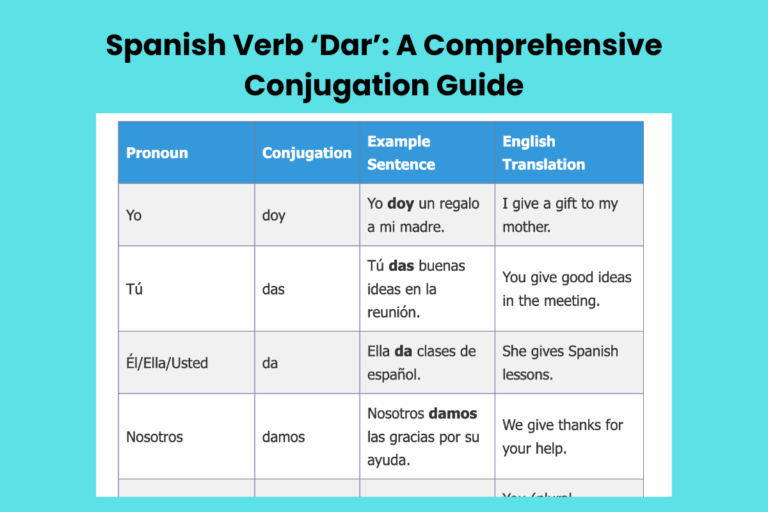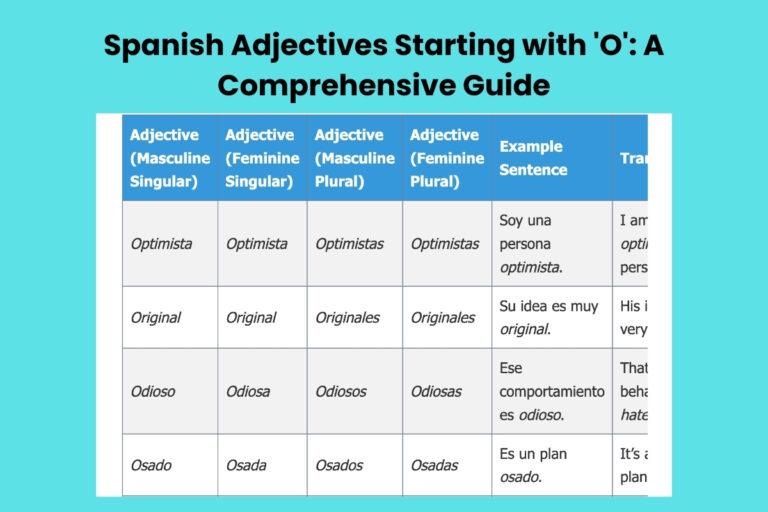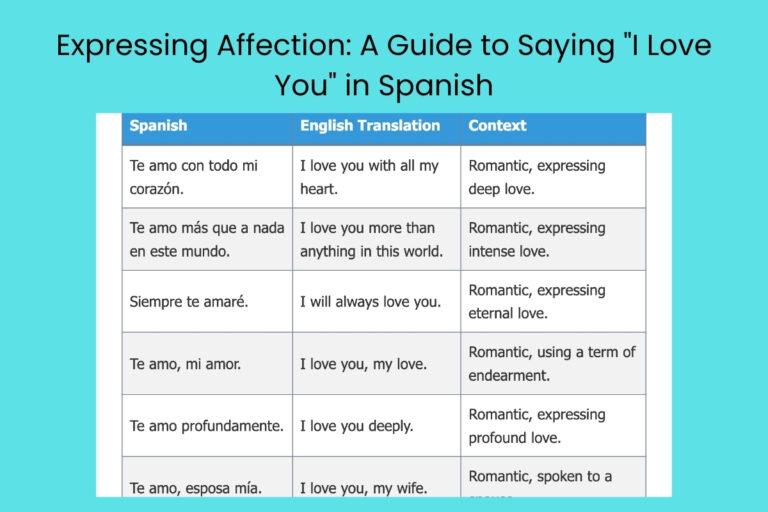Spanish Words Starting with X: A Comprehensive Guide
Understanding Spanish vocabulary is crucial for effective communication and language proficiency. While the letter ‘x’ might not be as common in Spanish as in English, it still plays a significant role, appearing in various words with diverse origins and meanings.
This article provides a comprehensive guide to Spanish words starting with ‘x’, exploring their definitions, usage, grammatical contexts, and common mistakes. Whether you’re a beginner or an advanced learner, this resource will enhance your understanding of Spanish vocabulary and improve your language skills.
This guide is designed for students learning Spanish at any level, teachers seeking comprehensive materials, and anyone interested in expanding their knowledge of the Spanish language. By the end of this article, you will have a solid grasp of Spanish words beginning with ‘x’, enabling you to use them confidently and accurately in your speaking and writing.
Table of Contents
- Introduction
- Definition of Spanish Words Starting with X
- Structural Breakdown
- Types or Categories of Words Starting with X
- Examples of Spanish Words Starting with X
- Usage Rules for Words Starting with X
- Common Mistakes
- Practice Exercises
- Advanced Topics
- FAQ
- Conclusion
Definition of Spanish Words Starting with X
Spanish words starting with the letter ‘x’ are relatively few compared to other letters. The pronunciation of ‘x’ in Spanish can vary depending on its position in the word and the region.
Generally, it is pronounced as a voiceless alveolar fricative (similar to the ‘s’ in ‘sun’) before consonants or at the beginning of a word. However, between vowels, it is often pronounced as a ‘gs’ sound or even a ‘j’ sound in some regions.
The letter ‘x’ in Spanish words often indicates words of foreign origin, particularly from indigenous languages of Mexico and other Latin American countries. Many words starting with ‘x’ in Spanish are proper nouns, place names, or words related to the history and culture of these regions.
Structural Breakdown
The structure of Spanish words starting with ‘x’ typically follows basic Spanish phonetic and orthographic rules. The letter ‘x’ is followed by a vowel or a consonant, and the combination creates a specific sound.
The pronunciation can vary as mentioned above, which is crucial to understand for correct usage.
Considering the origin of these words, their structure sometimes reflects the original language’s phonetic features. This means that the spelling may not always align perfectly with standard Spanish pronunciation rules.
For example, words derived from Nahuatl, an indigenous language of Mexico, often retain the ‘x’ spelling even when the pronunciation has evolved.
Types or Categories of Words Starting with X
1. Place Names
Many Spanish words starting with ‘x’ are place names, particularly those in Mexico. These names often originate from indigenous languages and have been incorporated into Spanish.
2. Proper Nouns
These include names of people, historical figures, or fictional characters. While not as common, some proper nouns in Spanish do begin with ‘x’.
3. Loanwords
These are words borrowed from other languages, including indigenous languages like Nahuatl, as well as other foreign languages.
4. Technical Terms
Some technical or specialized terms in fields like medicine or science might start with ‘x’.
5. Common Nouns
While rare, there are a few common nouns in Spanish that begin with the letter ‘x’.
Examples of Spanish Words Starting with X
Below are examples of Spanish words starting with ‘x’, categorized for clarity. Each category includes a variety of words to illustrate their usage and context.
1. Place Names
The following table provides examples of place names in Spanish that start with the letter ‘x’. These names are primarily found in Mexico and reflect the region’s rich indigenous history.
| Spanish Word | English Translation/Description |
|---|---|
| Xalapa | City in Veracruz, Mexico (also spelled Jalapa) |
| Xochimilco | A borough in Mexico City known for its canals and artificial islands |
| Xcaret | An eco-archaeological park in Riviera Maya, Mexico |
| Xel-Ha | A natural aquarium in Riviera Maya, Mexico |
| Xochicalco | An archaeological site in Morelos, Mexico |
| Xalostoc | A town in the State of Mexico |
| Xico | A town in Veracruz, Mexico |
| Xiutetelco | A municipality in Puebla, Mexico |
| Xoxocotlán | A town in Oaxaca, Mexico |
| Xaltocan | A town in the State of Mexico |
| Xochitlán | Several towns in Mexico |
| Xocotlán | A town in Veracruz, Mexico |
| Xonacatlán | A town in the State of Mexico |
| Xochihuehuetlán | A town in Guerrero, Mexico |
| Xicatlacotla | A town in Guerrero, Mexico |
| Xochistlahuaca | A town in Guerrero, Mexico |
| Xochiapulco | A town in Puebla, Mexico |
| Xicohtzinco | A town in Tlaxcala, Mexico |
| Xalpatláhuac | A town in Guerrero, Mexico |
| Xochitepec | A town in Morelos, Mexico |
| Xaltianguis | A town in Guerrero, Mexico |
| Xomotla | A town in Puebla, Mexico |
| Xayacatlán | A town in Puebla, Mexico |
| Xalpancingo | A town in Guerrero, Mexico |
| Xochitonal | A town in Veracruz, Mexico |
| Xococ | A town in Yucatán, Mexico |
| Xucúm | A town in Yucatán, Mexico |
| Xcan | A town in Yucatán, Mexico |
2. Proper Nouns
This table contains examples of proper nouns that start with ‘x’ in Spanish. These are less common but still important to recognize.
| Spanish Word | Description |
|---|---|
| Xavier | A male name (often spelled Javier) |
| Ximena | A female name (also spelled Jimena) |
| Xoloitzcuintli | A breed of hairless dog from Mexico (often shortened to Xolo) |
| Xochitl | An indigenous name, often a female name, meaning “flower” in Nahuatl |
| Xenofonte | Spanish version of Xenophon (historical figure) |
| Xerxes | Spanish version of Xerxes (historical figure) |
3. Loanwords
The following table showcases loanwords in Spanish that begin with the letter ‘x’. These words are borrowed from other languages and integrated into Spanish vocabulary.
| Spanish Word | Origin | English Meaning |
|---|---|---|
| Xenofobia | Greek | Xenophobia (fear or hatred of foreigners) |
| Xilófono | Greek | Xylophone |
| Xerografía | Greek | Xerography (dry printing process) |
| Xilema | Greek | Xylem (plant tissue) |
| Xenón | Greek | Xenon (chemical element) |
| Xiita | Arabic | Shiite (branch of Islam) |
| Xinca | Indigenous (Guatemala) | Name of an indigenous group and language in Guatemala |
4. Technical Terms
This table includes technical terms in Spanish that start with the letter ‘x’, often used in scientific or specialized contexts.
| Spanish Word | Field | English Meaning |
|---|---|---|
| Xantoma | Medicine | Xanthoma (skin condition) |
| Xerosoma | Medicine | Xerosoma (excessive dryness of the skin) |
| Xerófilo | Botany | Xerophyte (plant adapted to dry environments) |
| Xilano | Chemistry | Xylan (type of hemicellulose) |
5. Common Nouns
The following table lists common nouns in Spanish that begin with the letter ‘x’. These words are used in everyday language, although they are not very numerous.
| Spanish Word | English Translation |
|---|---|
| Éxito | Success |
Usage Rules for Words Starting with X
The usage of Spanish words starting with ‘x’ follows general Spanish grammar rules, but there are some specific considerations:
- Pronunciation: The pronunciation of ‘x’ varies. At the beginning of a word or before a consonant, it’s typically pronounced like ‘s’. Between vowels, it can sound like ‘gs’ or ‘j’ depending on the region.
- Gender and Number: Like all Spanish nouns, words starting with ‘x’ have a gender (masculine or feminine) and can be singular or plural. The gender must be considered when using articles and adjectives.
- Capitalization: Proper nouns, including place names and personal names, always start with a capital letter.
- Orthography: Some words can be spelled with either ‘x’ or ‘j’ (e.g., Xalapa/Jalapa). Both spellings might be accepted, but it’s essential to be consistent.
Understanding these rules will help you use words starting with ‘x’ correctly in your Spanish communication.
Common Mistakes
Here are some common mistakes that learners make when using Spanish words starting with ‘x’:
- Incorrect Pronunciation: Mispronouncing the ‘x’ sound, especially between vowels.
- Gender Errors: Using the wrong gender article (el/la) with nouns starting with ‘x’.
- Spelling Confusion: Confusing ‘x’ and ‘j’ in words where both spellings are possible.
- Misunderstanding Meaning: Not knowing the specific meaning of less common words starting with ‘x’.
Here are some examples of correct and incorrect usages:
| Incorrect | Correct | Explanation |
|---|---|---|
| La Xalapa es bonita. | Xalapa es bonita. | Place names generally don’t require an article. |
| El Ximena es mi amiga. | Ximena es mi amiga. | Ximena is a female name and does not take the masculine article “el”. |
| Pronuncio Xilófono con ‘ks’ | Pronuncio Xilófono con ‘s’ | At the beginning of the word, ‘x’ is often pronounced as ‘s’. |
Practice Exercises
Test your knowledge with these practice exercises. Fill in the blanks with the correct Spanish word starting with ‘x’.
Exercise 1: Vocabulary Completion
| Question | Answer |
|---|---|
| 1. ___________ es una ciudad en Veracruz, México. | Xalapa |
| 2. El ___________ es un instrumento musical. | Xilófono |
| 3. Sufre de ____________, un miedo a los extranjeros. | Xenofobia |
| 4. ____________ es un nombre femenino. | Ximena |
| 5. __________ es un parque eco-arqueológico en la Riviera Maya. | Xcaret |
| 6. El perro __________ es originario de México. | Xoloitzcuintli |
| 7. Deseo mucho ___________ en mi nuevo trabajo. | Éxito |
| 8. __________ es un sitio arqueológico en Morelos, México. | Xochicalco |
| 9. __________ es un pueblo en Oaxaca, México. | Xoxocotlán |
| 10. __________ es un elemento químico. | Xenón |
Exercise 2: True or False
Determine whether the following statements are true or false.
| Statement | Answer |
|---|---|
| 1. All Spanish words starting with ‘x’ are pronounced with a ‘ks’ sound. | False |
| 2. Xalapa is a city in Spain. | False |
| 3. ‘Éxito’ means failure in English. | False |
| 4. Xochimilco is known for its canals. | True |
| 5. Xenofobia is a type of flower. | False |
| 6. Xoloitzcuintli is a type of cat. | False |
| 7. The ‘x’ in ‘Xavier’ is always pronounced like ‘ks’. | False |
| 8. Xcaret is a natural aquarium. | False |
| 9. Xilófono is a percussion instrument. | True |
| 10. Xinca is a language spoken in Mexico. | False |
Exercise 3: Sentence Construction
Create sentences using the following Spanish words starting with ‘x’.
| Word | Example Sentence |
|---|---|
| Xalapa | Xalapa es una ciudad hermosa en Veracruz. |
| Xilófono | El niño toca el xilófono en la orquesta. |
| Xenofobia | La xenofobia es un problema social grave. |
| Ximena | Ximena es una estudiante muy inteligente. |
| Éxito | Le deseo mucho éxito en su carrera. |
| Xochimilco | Visitamos Xochimilco y paseamos en trajinera. |
| Xcaret | Fuimos a Xcaret durante nuestras vacaciones. |
| Xenón | El xenón se utiliza en algunas lámparas. |
| Xoloitzcuintli | El xoloitzcuintli es un perro muy especial. |
| Xochicalco | Las ruinas de Xochicalco son impresionantes. |
Exercise 4: Translation
Translate the following sentences into Spanish using words starting with x.
| English Sentence | Spanish Translation |
|---|---|
| I wish you much success in your new job. | Te deseo mucho éxito en tu nuevo trabajo. |
| Xochimilco is a beautiful place in Mexico City. | Xochimilco es un lugar hermoso en la Ciudad de México. |
| The xylophone is a fun musical instrument. | El xilófono es un instrumento musical divertido. |
| Xenophobia is a serious problem in many countries. | La xenofobia es un problema serio en muchos países. |
| Ximena is my best friend. | Ximena es mi mejor amiga. |
| We visited Xcaret on our last vacation. | Visitamos Xcaret en nuestras últimas vacaciones. |
| Xalapa is a city known for its coffee. | Xalapa es una ciudad conocida por su café. |
| The Xoloitzcuintli is an ancient breed of dog. | El Xoloitzcuintli es una raza antigua de perro. |
| Xenon is used in some types of lighting. | El xenón se utiliza en algunos tipos de iluminación. |
| The ruins of Xochicalco are very interesting. | Las ruinas de Xochicalco son muy interesantes. |
Advanced Topics
For advanced learners, exploring the etymology of words starting with ‘x’ can be fascinating. Many of these words have roots in ancient languages, offering insights into the history and cultural influences on the Spanish language.
Additionally, researching the cultural significance of place names like Xochimilco or Xcaret can provide a deeper understanding of Mexican history and traditions. Furthermore, the nuances in pronunciation across different Spanish-speaking regions can be a worthwhile area of study.
Another advanced topic involves the historical evolution of the letter ‘x’ in Spanish. Its pronunciation has changed over time, and understanding these changes can help learners appreciate the dynamic nature of language.
FAQ
- Why are there so few Spanish words starting with ‘x’?
The scarcity of Spanish words starting with ‘x’ is due to the historical development of the language. The letter ‘x’ was not as commonly used in Latin, the ancestor of Spanish, and many words that originally had an ‘x’ evolved to use other letters, such as ‘j’. Additionally, many words starting with ‘x’ are loanwords from indigenous languages, which are not as prevalent in the core vocabulary of Spanish.
- How do I pronounce the ‘x’ in Spanish correctly?
The pronunciation of ‘x’ in Spanish depends on its position in the word. At the beginning of a word or before a consonant, it’s typically pronounced like the ‘s’ in “sun.” Between vowels, it can be pronounced like ‘gs’ (similar to the ‘x’ in “example”) or, in some regions (like Mexico), like a ‘j’ (similar to the ‘h’ in “house”). Listen to native speakers and practice to master the different pronunciations.
- Are there any regional variations in the pronunciation of ‘x’?
Yes, there are regional variations. In Spain, the ‘x’ between vowels is often pronounced as a ‘gs’ sound. In Mexico and some other Latin American countries, it’s more commonly pronounced like a ‘j’ sound. Pay attention to the pronunciation used in the specific region where you are learning or using Spanish.
- Is it always correct to replace ‘x’ with ‘j’ in words like Xalapa?
In some cases, both spellings (‘x’ and ‘j’) are accepted, as with Xalapa/Jalapa. However, this is not universally true for all words. It’s essential to check the correct spelling in a dictionary or reliable source. Consistency is key; choose one spelling and stick with it.
- What is the origin of most Spanish words starting with ‘x’?
Many Spanish words starting with ‘x’ come from indigenous languages of Mexico and Central America, such as Nahuatl and Mayan. These words often refer to place names, cultural elements, or historical figures. Additionally, some words are loanwords from Greek, Arabic, or other languages.
- How can I improve my vocabulary of Spanish words starting with ‘x’?
To improve your vocabulary, focus on learning words in context. Read articles, books, and websites in Spanish that discuss topics related to Mexico and Latin America. Pay attention to the pronunciation of these words and practice using them in sentences. Flashcards and vocabulary apps can also be helpful.
- What are some common mistakes to avoid when using words starting with ‘x’?
Common mistakes include mispronouncing the ‘x’ sound, using the wrong gender article with nouns, confusing ‘x’ and ‘j’ in spelling, and not understanding the specific meaning of less common words. Pay attention to these potential pitfalls and practice to avoid them.
- Are there any grammatical rules specific to words starting with ‘x’?
Words starting with ‘x’ follow the same grammatical rules as other Spanish words. They have a gender (masculine or feminine) and can be singular or plural. The gender must be considered when using articles and adjectives. Also, proper nouns are always capitalized.
- How does the ‘x’ sound in Spanish compare to English?
The ‘x’ sound in Spanish can be different from English. In English, ‘x’ is often pronounced as /ks/ or /z/. In Spanish, it can be /s/, /ɣs/, or /x/ (similar to the ‘h’ in “house” in some regions). Understanding these differences is crucial for accurate pronunciation.
- Why is the word “éxito” an exception to the place name trend?
The word “éxito,” meaning success, is primarily an exception because its etymological roots trace back to Latin rather than indigenous languages. While many Spanish words starting with ‘x’ are derived from indigenous languages, “éxito” has a classical origin, setting it apart from the geographic and cultural focus of other ‘x’ words in Spanish.
Conclusion
Understanding Spanish words starting with the letter ‘x’ is essential for developing a comprehensive vocabulary and improving your overall language proficiency. While these words may be fewer in number compared to other letters, they often carry significant cultural and historical importance, particularly in the context of Mexico and other Latin American countries.
By mastering their pronunciation, usage rules, and common pitfalls, you can enhance your communication skills and avoid frequent errors.
Continue to practice and expand your vocabulary by reading, listening, and speaking Spanish regularly. Pay attention to the nuances of pronunciation and usage, and don’t hesitate to ask native speakers for clarification.
With dedication and consistent effort, you can confidently incorporate Spanish words starting with ‘x’ into your everyday language and achieve greater fluency.

